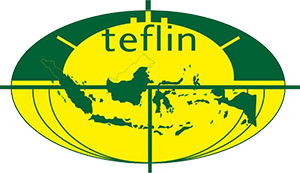Effectiveness of Active Debate Method in English Speaking Skills of Students in SMAN 3 Padangsidimpuan
Abstract
Keywords
Full Text:
PDFReferences
Aries Mintaraga. 2002. Buku Panduan Praktis Debat Bahasa Indonesia Format Parlemen Australia. Magelang: Komunitas Debat FPA Regional Jawa
Tengah-DIY.
Arikunto, Suharsimi. 2006. Prosedur Penelitian Suatu Pendidikan Praktik.nYogyakarta: Rineka Cipta.
Arsjad, Maidar. G. 1988. Pembinaan Kemampuan Berbicara Bahasa Indonesia. Jakarta: Erlangga.
Hall, Dawn. 2011. Debate: Innovative Teaching to Enhance Critical Thinking and Communication Skill in Healthcare Professionals. Internet Jurnal of Allied Health Sciences and Practice Volume 9 Number 3. Disajikan dalam http://ijahsp.nova.edu/articles/Vol9Num3/Hall.htm diakses pada 11 Oktober 2014.
Harmuni. 2009. Strategi dan Model-model Pembelajaran Aktif Menyenangkani. Yogyakarta: Fakultas Tarbiyah UIN Sunan Kalijaga. Hendrikus, Dori Wuwur. 2005. Retorika Terampil Berpidato, Berdiskusi, Berargumentasi, Bernegoisasi. Yogyakarta: Kanisius.
Hendrik Praja. 2012. Penerapan Teknik Active Debate (Perdebatan Aktif) untuk
Meningkatkan Keterampilan Berbicara: Penelitian Tindakan Kelas terhadap Siswa Kelas XI SMA PGRI I Bandung Tahun Ajaran 2010-2011. Simpulan Hasil Penelitian. Universitas Pendidikan Indonesia. Diambil dari http://repository.upi.edu/10830/7/s_ind_0703790_chapter5.pdf pada 28 Februari 2015.
Nurgiyantoro, Burhan. 2001. Penilaian dalam Pengajaran Bahasa dan Sastra. Yogyakarta: BPFE.2009. Statistik Terapan. Yogyakarta: UGM Press.
Silberman, Melvin L. 2014. Active Learning; 101 Cara Belajar Siswa Aktif. (Alih Bahasa: Raisul Muttaqien). rev.ed. Bandung: Nuansa Cendekia.
Sudaryanto. 2000. Metodologi Penelitian Pendidikan dan Pengajaran Bahasa Jilid I, Seri Paradigma Penelitian Kuantitatif, Penelitian Kualitatif. Diktat: FBS UNY.
Sugiyono. 2014. Memahami Penelitian Kualitatif. Bandung: Alfabeta.
Suharsimi Arikunto, et.al. 2012. Penelitian Tindakan Kelas. Jakarta: PT Bumi Aksara.
Tarigan, Henry Guntur. 2008. Menulis sebagai suatu Keterampilan Berbahasa. Bandung: Angkasa.
DOI: http://dx.doi.org/10.21043/jetli.v2i2.5739
Refbacks
- There are currently no refbacks.
Copyright (c) 2019 Journal of English Teaching and Learning Issues







